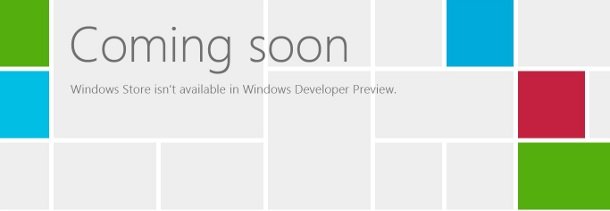Will Windows Store take on Steam?

Have you tried Windows 8 yet? According to Microsoft, over half a million people downloaded the developer build of the new operating system within 24 hours of it being released to the public at the start of the BUILD conference in Seattle this week.
You can get your copy of Windows 8 to try out here , although you should be warned that it's not stable enough to use as an everyday OS just yet.
We've already talked a bit about the integration of Xbox Live into Windows 8, and what ARM compatibility means for gaming . There is one more big change coming through, though: the Windows Store.
Just like Apple's App Store, which started on the iPhone and is now an integral part of the OSX desktop, this is designed to be a simple shop front for a software repository. It's not the first time Microsoft has tried something similar – Games for Windows and Windows Vista Ultimate Extras spring to mind – but the world knows how to do these things properly now, and from what we've seen so far the Windows Store is a vast improvement over its predecessors.
The main purpose of the Windows Store is to provide apps for the Metro interface. That's the tile-based, touch screen friendly tablet part of Windows 8 which is proving rather controversial among the gaming community. Indeed, it will be the only way to install Metro apps on a PC or tablet, and work as a one click to buy and install model, just like the App Store and Marketplace. Similarly, there will be quality control and approvals to go through to get an app published, plus – Microsoft says – a much more secure installation model compared to traditional desktop programs.
But that isn't it's exclusive purpose. There aren't many details about how the Store will work with the more traditional side of Windows, but there will definitely be an area for downloading x86 programs too. Microsoft talks about “the tools you know and love” being in the store, which presumably includes games as well as stuff like Office and Quicken (which was demoed on stage).
What's interesting for games publishers is that Microsoft's Steven Sinofsky, president of Windows and Windows Live, has said that there'll be no requirements to change licensing models for existing programs.
Keep up to date with the most important stories and the best deals, as picked by the PC Gamer team.
For Metro apps, at least, you'll be have access to all the programs you've paid for on up to five client machines – and the assumption is that you'll be able to do the same thing with desktop programs too. That will make Windows Store a pretty strong competitor for Steam and other download services like Direct2Drive.
The only thing is that right now, Microsoft's attention seems to be focussed on using the Store to deliver tablet apps. Which is great, but since programs compiled for Windows on ARM won't run on Windows x86 and vice versa, the desktop shopfront may yet end up as an afterthought, and it'll need to be much more than that if it's to attract people away from the established services.

